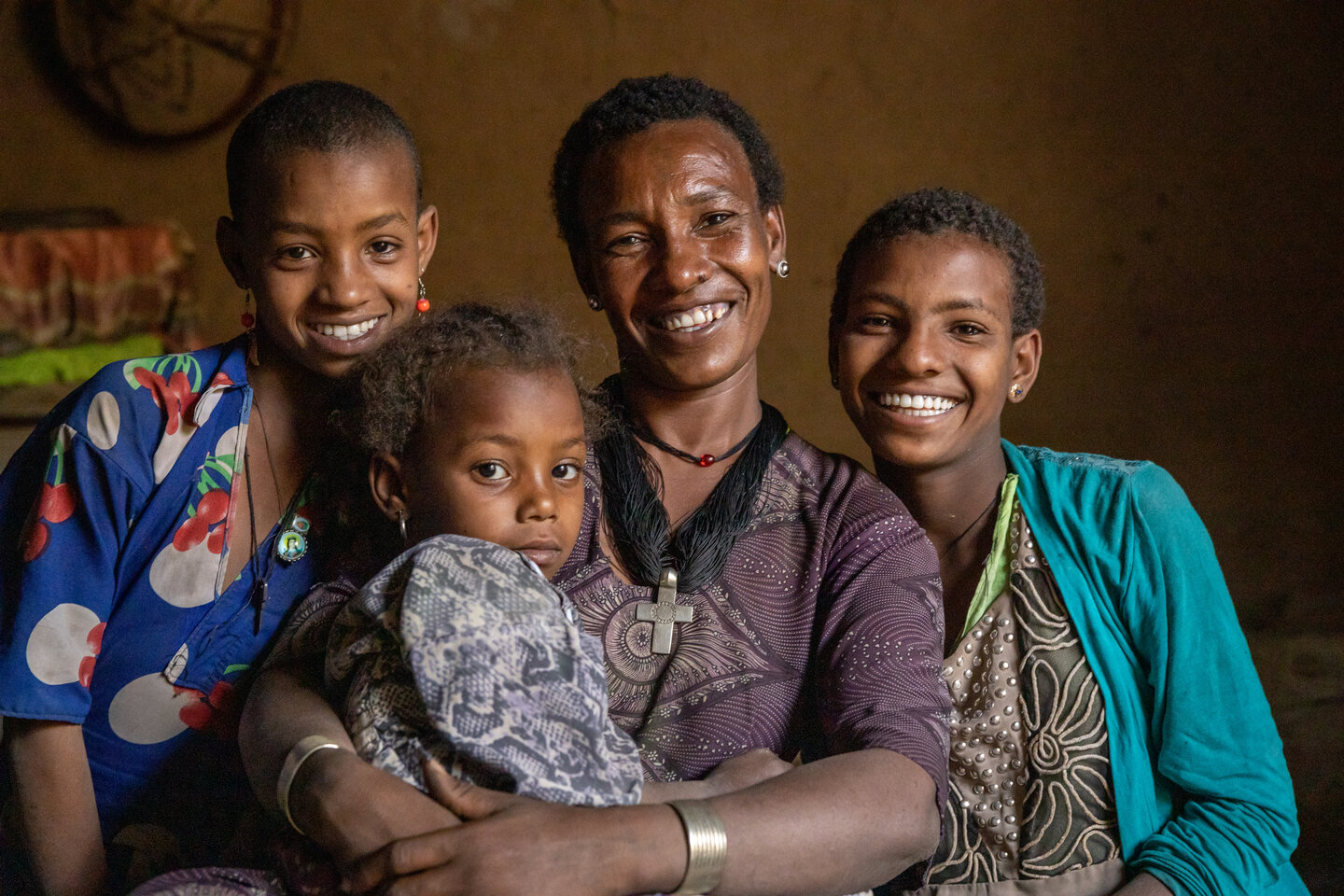Kassech Getu has lost many things: her garden, her income – her old life. Because of civil war and drought, she could no longer harvest from her fields – and the prices on the market are rising to unaffordable levels in the dry Wag Hemra region. Now she’s hoping for rain and fresh vegetables.
There were times when Kassech Getu could give her children some change to buy cookies at the market. Times when she served her children potatoes and eggs from her own chicken and "even vegetables for good health."
Kassech is a 35-year-old single mother. She left her husband because he took the money she earned to buy alcohol for himself. Her life has always been in a fragile balance. Thanks to seeds and support from Helvetas, she was able to start her own garden and grow vegetables – for her own cooking and to sell at the market. "We didn't lack anything," she says.
But then the conflict in Tigray spilled over into the region, just at harvest time. "I was at the market and heard the sirens. We quickly gathered up what we could carry and ran for our lives." While she hid in the desert with her children, her vegetables dried up and goats feasted on the ripe maize.

Dry season and rising prices
Kassech wasn't displaced from her home and garden for long. But it was long enough to lose her livelihood. Now her worries make her lose sleep. "My children are hungry, and we all lost a lot of weight. I can feed my children about a quarter of what used to be on our plates."
Since it's the dry season right now, she can't grow vegetables and has to buy everything at the market. "But market prices have gone up; everything is expensive. And a lot of things are missing from the supply. There is hunger in the area," says Kassech. A kilo of potatoes, which once cost seven birr (13 cents), now sells for four times that. Teff, the basis for the sour flatbread injera that usually accompanies every meal, has become prohibitively expensive: A kilo costs 60 birr instead of 35. At least Kassech still has her chicken. But she must sell the eggs to send her children to school.
Helvetas distributes beans and millet to alleviate the greatest needs of the people in Wag Hemra. Kassech uses a portion to feed herself and her children; she also sells some at the market – an investment for the future. She used her earnings to buy garlic, turmeric powder, salt, matches and gesho leaves for local beer. She takes a long walk each Monday to buy the items cheaper at a big market, and then sells them in small quantities at various village markets.
"Day and night, I think about how I can improve my children's lives, how I can grow my business so they can be better off. I want to serve them a full meal three times a day." Kassech is working hard to make that happen. She is currently replanting a small seedbed behind her house. Until the vegetables are ripe, she and her children continue to go to bed hungry.
About the Author
Elshaday Gebeyehu is the communications officer for Helvetas Ethiopia.

